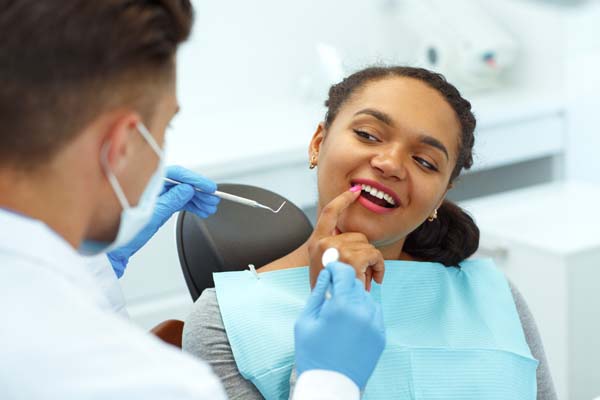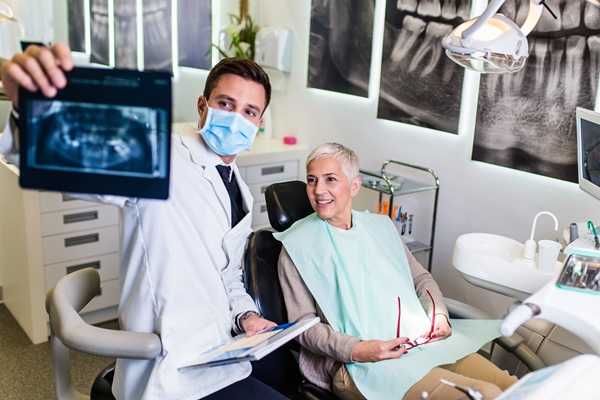Dental Lasers Are a Minimally Invasive Treatment

Unlike dental lasers, traditional dental procedures and tools have a reputation for being rather noisy and uncomfortable and may even be the reason so many people feel discouraged from visiting the dentist. With dental laser technology, less invasive and more comfortable alternatives to traditional dental procedures have been and are being developed. Whether it is for preventative care, treatment of an already-existing issue or cosmetic treatment, lasers offer a compelling alternative to more uncomfortable dental procedures.
Uses of dental lasers
Tooth decay
Dental laser procedures can be a significantly less uncomfortable option for tooth decay removal and have quickly become the desirable option for patients wanting a more gentle option. Traditional drills and methods of tooth decay removal and filling preparation can be loud and painful and often leave patients with bleeding gums and an uncomfortable healing process.
Precise and far less painful, lasers can take some of the discomforts out of preparing and filling a tooth. Far more accurate than a regular drill and gentler on the surrounding area, dental laser procedures can be easier to recover from and have lower rates of gum bleeding or infection.
Gum disease
Soft tissue dental lasers are a low-impact alternative to traditional methods of approaching gum disease or reshaping the gums for cosmetic or other dental procedures. Gentler than other forms of cutting and shaping the gums, like scalpels and razors, dental lasers can produce far less or no bleeding, reducing the need for painkillers, sedatives and post-op care. Dental lasers can also have an antibacterial effect on teeth and gums, helping to kill off bacteria and keep your gums healthy during the healing process.
Biopsy and tissue removal
Patients requiring a biopsy or tissue removal in the throat or mouth have also found benefits to this new form of dental procedure. Traditional scalpel methods for removing soft tissue from the throat and mouth (for instance, in the case of patients with excess tissue, resulting in sleep apnea) often leave the patient with raw, bleeding cuts to take care of. By utilizing lasers in procedures that require soft tissue removal, dentists can give their patients a more comfortable recovery, free from excess bleeding or uncomfortable and elongated scabbing.
Cavity removal and prevention
For even minor cavities and bacterial buildups, dental lasers can help. By targeting pits and vulnerable areas of the tooth, dentists can use dental lasers to kill bacteria and eliminate cavities virtually painlessly. This prospect has massive appeal to those who fear the dentist chair, especially nervous young people who may be fearful of the loud sounds and discomfort of a traditional drill.
Along with addressing small cavities, dental lasers may even be able to help prevent cavities by strengthening your teeth, killing bacteria and promoting strong enamel resistance. As dental lasers advance, so too will this technology. The ability to heat and reinforce outer layers of enamel without damaging or impacting the sensitive inner layers may well be the innovative answer to cavities.
Make an appointment today!
Request an appointment here: https://www.carmelsmilesdentist.com or call Smiles in the Village Dentistry at (317) 218-7985 for an appointment in our Carmel office.
Check out what others are saying about our services on Yelp: Read our Yelp reviews.
Related Posts
During the consultation with an implant dentist, the patient and the dental team can put together a treatment plan. There are various steps during the teeth replacement process. Knowing them ahead of time can help the patient prepare prior to any scheduled procedures to ensure the implant dentistry process is as easy and convenient as…
Oral surgery is a branch of dental care that offers a wide range of procedures designed to address conditions and issues affecting the mouth, teeth, and jaw. These procedures can help maintain oral health and address complex dental problems. Understanding the different approaches to oral surgery can help patients make informed decisions about their treatment…
Implant dentistry is a great way to replace one or multiple teeth long-term. An often overlooked benefit of implant dentistry is the ability to prevent bone loss in the jaw. This review discusses how implant dentistry can help you keep your jawbone healthy and prevent bone atrophy.Alternative solutions to implant dentistry do not provide the…
Many dentists recommend implant dentistry to patients seeking teeth replacement because it is safe and has proven results. Implant dentistry also provides a way to fulfill a range of teeth replacement needs, and you can restore your smile after losing a single tooth, a section, or an entire row of teeth with dental implant restorations.The…


